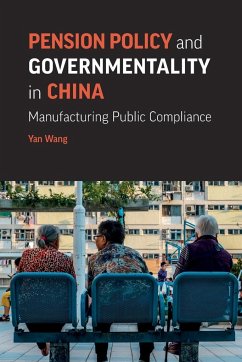Rapid economic growth is often a disruptive social process threatening the social relations and ideologies of incumbent regimes. Yet far from acting defensively, the Chinese Communist Party has lead a major social and economic transformation over forty years, without yet encountering fundamental challenges subverting its rule. A key question for political sociology is thus - how have the logics of China's governmentality been able to help maintain compliance from the governed while acting so radically to advance the state's growth priorities? This book explores the issue by analysing the detailed trajectories, rationale, and effects of China's pension reforms. It uses strong methods, including institutional analysis of resource allocation in the multiple pension schemes and programmes, and quantitative text analysis of the knowledge construction in official discourse along with the reforms. Causal identification estimates the effects of key policy instruments on public opinion about pension responsibility and political trust. Moving beyond the pension issues, the analysis discusses with qualitative evidence why falsified compliance might exist in China's society and the mechanisms that may lie behind it. Where active counter-conduct (such as resistance) is confined, individuals may choose cognitive rebellion and falsify their public compliance. The Chinese state's strategy to generate public compliance is hybrid, organic, and dynamic. The state rules society by its customised governance design and constant adjustments. Public compliance is not only acquired through 'buying off' the public with governmental performance and transfer benefits, but is also manufactured through achieving cultural changes and new ideological foundations for general legitimation.
Bitte wählen Sie Ihr Anliegen aus.
Rechnungen
Retourenschein anfordern
Bestellstatus
Storno








